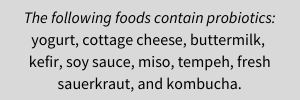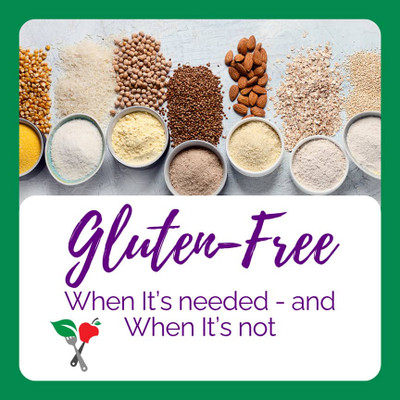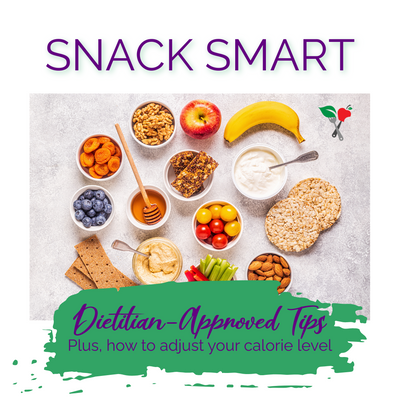Probiotics Rich Foods to Boost Your Health
As we enter the season of sniffles and coughs, we are all focused on how to keep ourselves healthy. We all know how bad bacteria can make us sick. But what about the “good” bacteria that can actually improve our health? These beneficial bacteria are called probiotics. Research on the properties and functionality of probiotics suggest that they play an important role in a strong immune system and good digestive health.
Some of the potential health benefits of probiotics rich foods and probiotic supplements include:
Synthesizing vitamins (particularly B vitamins)
Boosting your immune system by producing antibodies for certain viruses
Decreasing allergies (particularly for dermatitis or eczema)
Decreasing the risk of dental caries
Reducing problems associated with inflammatory bowel disease and irritable bowel syndrome
Helping people with lactose intolerance digest dairy products more easily
Reducing symptoms of diarrhea associated with antibiotics usage or acute illness

Supermarket shelves are becoming packed with foods touting their probiotics content…so what do we need to know when trying to boost our probiotic intake?
1. Choose probiotics rich foods over supplements. Why? Foods that contain probiotics as a result of the fermentation process buffer stomach acids and increase the chance that the probiotics will survive in the GI tract. Some dairy products, such as yogurt, are the preferred vehicle for probiotics due to their pH and fat content which create additional protection for probiotics passing through the GI tract.
2. Look for “Live and Active Cultures.” When purchasing probiotics products, you want to make sure they contain live and active cultures, this should be noted somewhere on the package. Pasteurization kills probiotics, but many fermented-food manufacturers add them back into the food.
3. Understand that health benefits are strain specific. Different species of probiotics can have different benefits. Below lists the probiotics recommended for different conditions.

4. Read supplement packages well. Most supplements are not regulated by the FDA, so look for supplements that are certified through a third party, with a “USP” seal, meaning they have been checked to contain what is stated on the package. Aim for a variety of strains of probiotics that contain at least 106 to 109 CFUs (colony-forming units). Research has shown this is the minimum amount of CFUs that must reach the intestines in order to provide benefits. And as always, check with your physician to be sure the probiotic supplement is safe for you.

Interested in eating healthy? Hungry for more?








 Weight Loss
Weight Loss Health & Wellness
Health & Wellness Diabetes
Diabetes Heart Health
Heart Health Motherhood & Family
Motherhood & Family Dietary Restriction
Dietary Restriction Other Health Conditions
Other Health Conditions About SSHE
About SSHE


